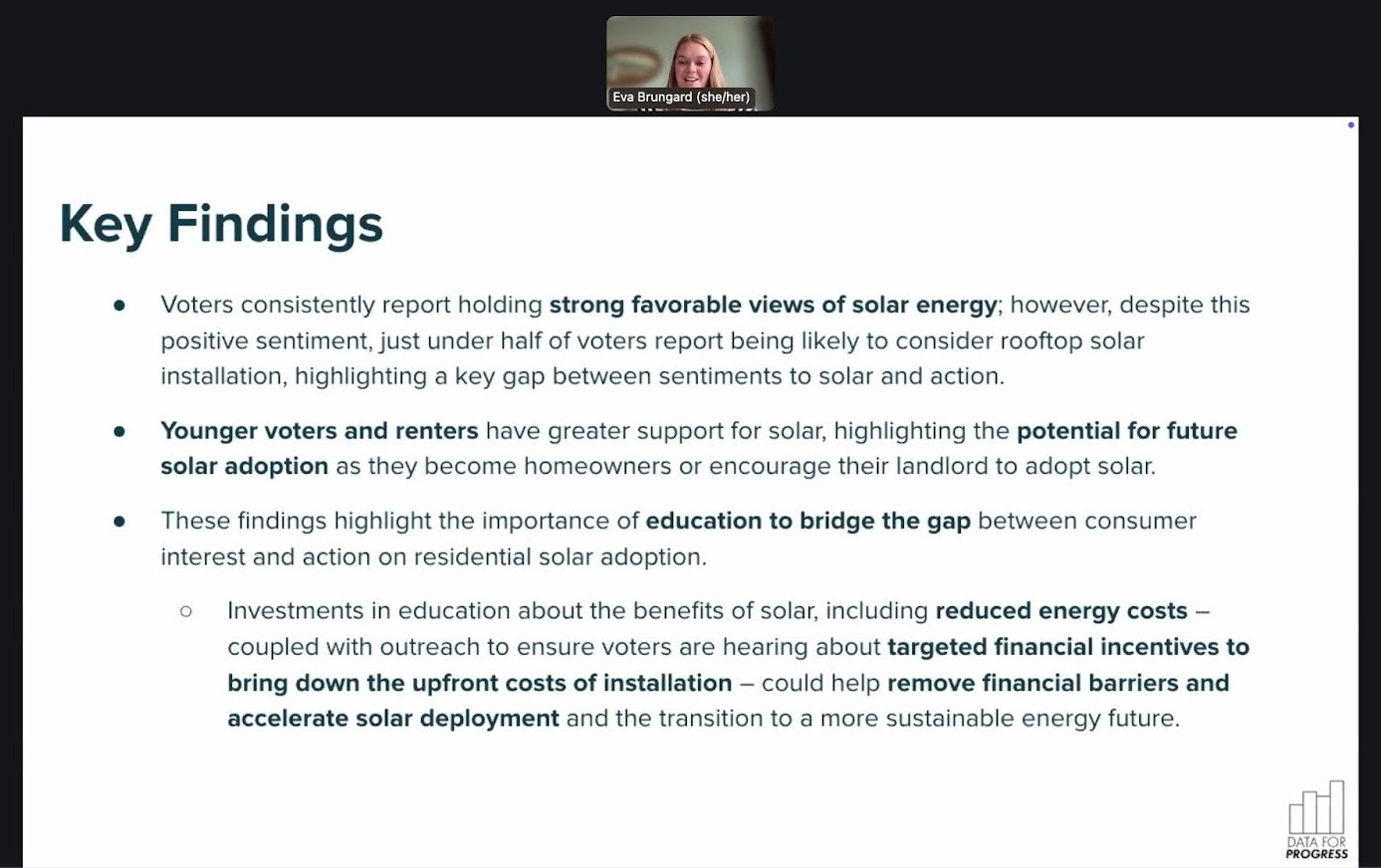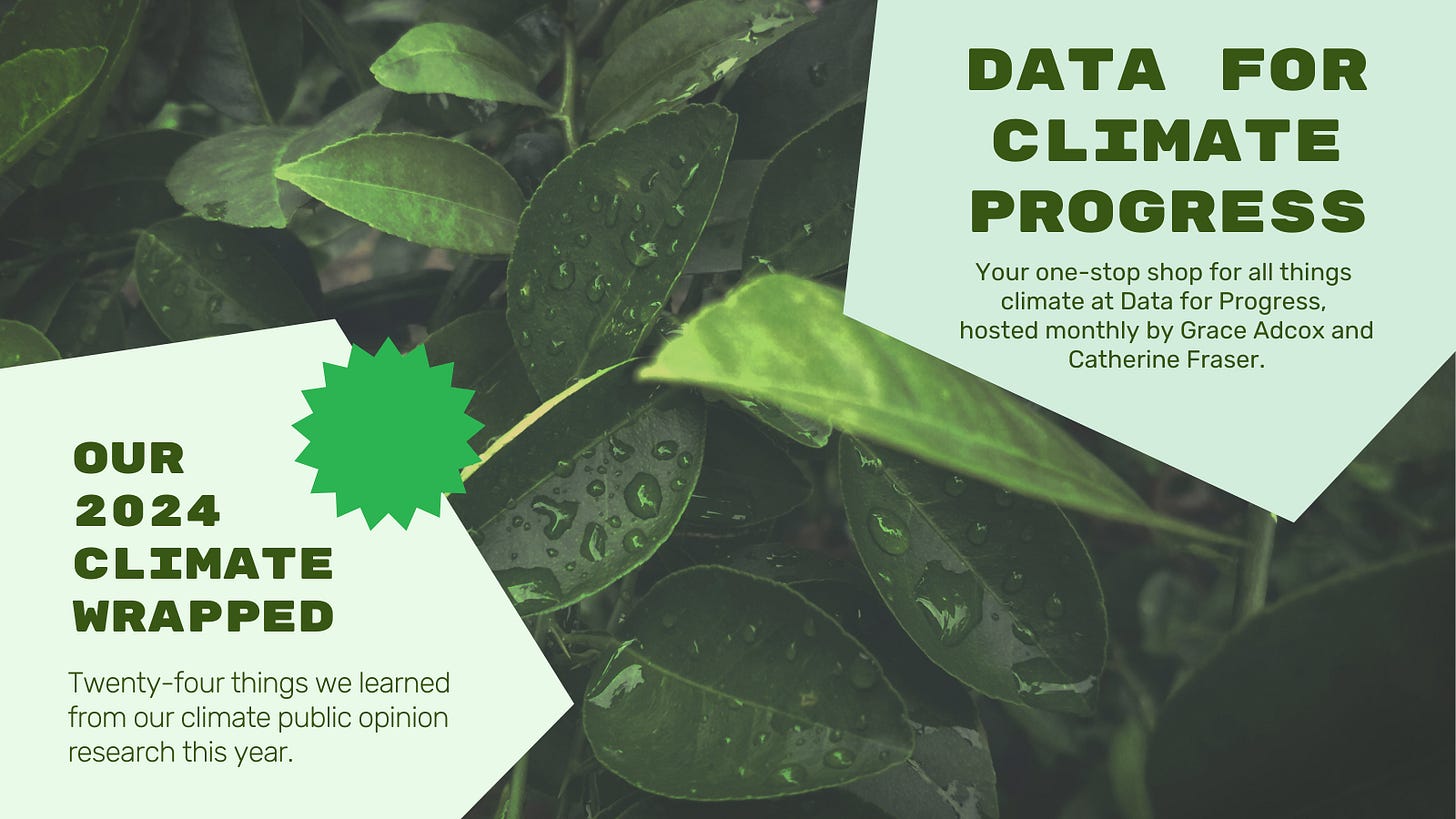2024 Data for Climate Progress Wrapped
Welcome back to Data for Climate Progress — your one-stop shop for all things climate at Data for Progress.
Welcome back to Data for Climate Progress — your one-stop shop for all things climate at Data for Progress. In our final climate newsletter of the year, we are thrilled to reveal our 2024 Data for Climate Progress Wrapped. Thank you for following DFP’s climate team here — we look forward to sharing more climate updates in 2025.
As always, we’d love to hear from you — drop us (Grace Adcox and Catherine Fraser) a line at gracea@dataforprogress.org and catherine@dataforprogress.org. Forwarded this email? You can subscribe below.
DFP x Environmental Polling Consortium
This month, Data for Progress’ Grace Adcox and Eva Brungard presented to environmental advocates at the Environmental Polling Consortium’s quarterly briefing. We shared findings from our recent survey on public perceptions of residential solar panels, highlighting the gap between consumer interest in rooftop solar and personal adoption. Our findings suggest that consumer education about the financial incentives and cost savings associated with solar can lower the most significant barrier to adoption – its high upfront installation costs.
2024 Data for Climate Progress Wrapped
Voters Want Rooftop Solar, but It Won’t Happen Overnight
By Eva Brungard
2024 has been a slow year for residential solar adoption, with a projected 26% decline in installations year-over-year. To better understand public attitudes toward rooftop solar, Data for Progress recently surveyed 1,229 likely voters on perceptions of rooftop solar and barriers to its widespread adoption. Results reveal strong consumer interest but also identify systemic challenges, including costs and consumer education.
Despite only 8% of respondents reporting that they currently have solar panels installed, nearly half (47%) say they would be very or somewhat likely to install solar panels in the next five years. Support is even higher among young voters (64%) and Democrats (57%).
The majority of voters acknowledge the benefits of rooftop solar paired with battery storage, with 63% of voters believing the combination would reduce the frequency of blackouts, and 65% anticipating that rooftop solar plus battery storage would lower their electricity bill. Among those considering a solar installation in the next five years, the most common reason is to reduce their electricity bill (43%). Others cite the importance of having backup energy for extreme weather events (19%), independence from the electrical grid (17%), and a reduction of their carbon footprint (14%).
Rooftop solar has demonstrated its ability to lower energy bills and reduce carbon emissions, but many homeowners continue to face significant barriers to adoption: 39% of those not considering a solar installation point to high upfront costs as the primary reason for their hesitance. Renters face additional challenges, with 63% citing a lack of decision-making authority to make permanent changes to their homes as the primary reason they have not adopted solar.
These findings show a broad interest across all demographics in solar energy, but also a need for targeted education on the availability of incentives to lower its upfront cost, and on the ability of solar to deliver long-term cost savings for solar owners.





















